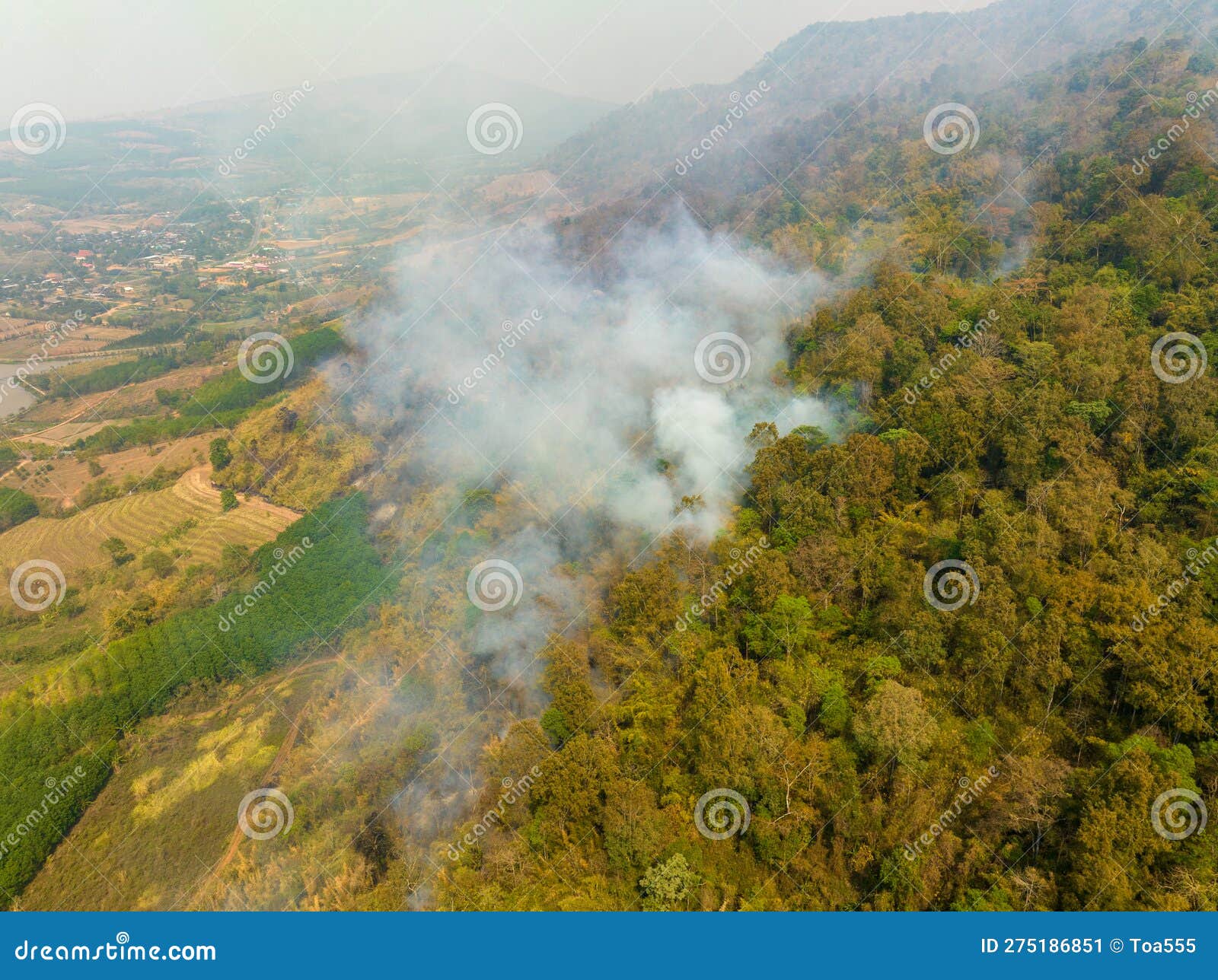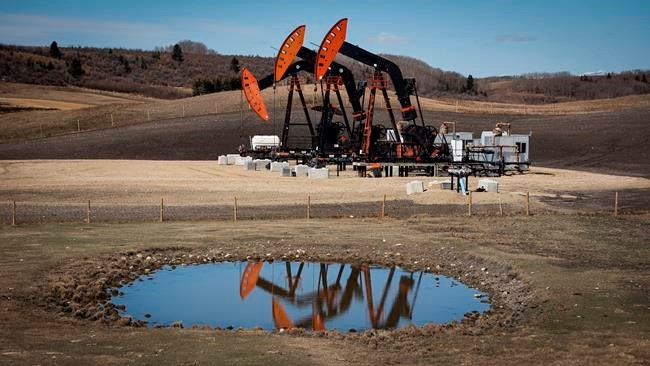Record-Breaking Forest Loss: Wildfires Intensify Global Deforestation

Table of Contents
The Role of Wildfires in Global Deforestation
Wildfires are now a major driver of global deforestation, surpassing traditional logging in certain regions. The escalating frequency and intensity of these infernos are largely attributed to climate change, with rising temperatures and prolonged droughts creating tinderbox conditions. These conditions are exacerbated by human activities such as unsustainable land management practices. The Amazon rainforest, Siberian forests, and Australian bushlands have all experienced devastating wildfires in recent years, resulting in the loss of millions of hectares of irreplaceable forest ecosystems.
- Increased area burned annually: Satellite data reveals a dramatic increase in the total area burned globally each year due to wildfires.
- Vulnerable ecosystems: Boreal forests, Mediterranean ecosystems, and tropical rainforests are particularly vulnerable to wildfire destruction due to their unique characteristics and susceptibility to drought.
- Long-term impact on regeneration: Wildfires can drastically alter forest composition and structure, hindering natural regeneration and potentially leading to long-term shifts in ecosystem services.
Deforestation Beyond Wildfires: Other Contributing Factors
While wildfires contribute significantly to record-breaking forest loss, other human activities are equally responsible. These include:
- Illegal logging and timber harvesting: Unsustainable logging practices deplete forest resources, leaving landscapes vulnerable to wildfires and hindering reforestation efforts. This is particularly problematic in regions with weak governance and enforcement.
- Agricultural expansion: The demand for palm oil, soy, and cattle grazing has driven massive deforestation, converting vast tracts of forest into agricultural land. These activities often involve clearing forests through burning, increasing the risk of uncontrolled wildfires.
- Mining and infrastructure development: Mining operations and the construction of roads, dams, and other infrastructure projects often lead to forest clearing and fragmentation, increasing the likelihood of wildfires and impacting biodiversity.
The synergistic effect between these activities and wildfires is crucial. Deforestation from other sources creates fragmented landscapes, creating ideal conditions for wildfires to spread rapidly and intensely. For instance, the edges of deforested areas are drier and more flammable than intact forests.
- Statistics: Data from organizations like Global Forest Watch provides detailed statistics on deforestation rates driven by these activities, revealing the extent of the problem in various regions.
- Geographical impact: The Amazon, the Congo Basin, and Southeast Asia are among the regions most heavily affected by deforestation driven by agriculture, logging, and mining.
- Consequences: These activities lead to significant biodiversity loss, habitat fragmentation, soil erosion, and water pollution, affecting both the environment and local communities.
The Devastating Consequences of Record-Breaking Forest Loss
The consequences of record-breaking forest loss are profound and far-reaching.
-
Biodiversity loss: Deforestation is a leading cause of species extinction, driving countless plants and animals towards extinction due to habitat loss and fragmentation. The Amazon rainforest, a biodiversity hotspot, is particularly vulnerable.
-
Climate change: Forests act as crucial carbon sinks, absorbing atmospheric carbon dioxide. Deforestation releases vast amounts of stored carbon into the atmosphere, exacerbating climate change. Reduced carbon sequestration further intensifies the effect.
-
Social and economic consequences: Deforestation displaces indigenous communities, destroys livelihoods dependent on forest resources, and can lead to increased conflict over dwindling resources.
-
Endangered species: Orangutans, Sumatran rhinos, and numerous other species are facing extinction due to deforestation.
-
Carbon emissions: Deforestation contributes significantly to global greenhouse gas emissions, accounting for a substantial portion of annual CO2 emissions.
-
Economic costs: The economic costs of deforestation, including loss of timber, reduced ecosystem services, and damage from wildfires, are enormous.
Combating Record-Breaking Forest Loss: Solutions and Strategies
Addressing record-breaking forest loss requires a multifaceted approach encompassing various strategies:
-
Improved forest management: Sustainable forestry practices, including responsible logging and fire prevention techniques, are crucial.
-
Sustainable agriculture: Promoting sustainable agricultural practices, such as agroforestry and reduced deforestation agriculture, can minimize the environmental impact of farming.
-
International cooperation: International collaboration is essential to combat illegal logging and enforce sustainable forest management practices globally.
-
Reforestation and afforestation: Planting trees in deforested areas and establishing new forests can help restore degraded landscapes and sequester carbon. This includes large-scale reforestation projects and community-based initiatives.
-
Community involvement: Engaging local communities in forest conservation efforts is crucial for long-term success.
-
Successful projects: Numerous successful reforestation and conservation projects demonstrate the effectiveness of community-based approaches.
-
Policy recommendations: Stronger environmental regulations, stricter enforcement of laws, and financial incentives for sustainable forest management are needed.
-
Technological advancements: Remote sensing technologies and advanced monitoring systems can help track deforestation and identify illegal activities.
Addressing Record-Breaking Forest Loss – A Call to Action
The alarming rate of deforestation, fueled by wildfires and unsustainable human activities, presents a grave threat to our planet. The devastating consequences—biodiversity loss, climate change, and social disruption—demand immediate and decisive action. We must act now to protect our forests. Learn more about deforestation, support conservation organizations working to protect forests, advocate for stronger environmental policies, and contribute to reforestation efforts. By working together, we can combat record-breaking forest loss and safeguard the future of our planet. Every individual and collective effort counts in mitigating this global crisis.

Featured Posts
-
 Accessibility In Games Feeling The Pinch Of Industry Cutbacks
May 24, 2025
Accessibility In Games Feeling The Pinch Of Industry Cutbacks
May 24, 2025 -
 The Jonas Brothers Drama A Married Couples Unexpected Feud
May 24, 2025
The Jonas Brothers Drama A Married Couples Unexpected Feud
May 24, 2025 -
 Is Demna Gvasalia The Right Choice For Gucci Examining The Appointment
May 24, 2025
Is Demna Gvasalia The Right Choice For Gucci Examining The Appointment
May 24, 2025 -
 The 10 Fastest Standard Production Ferraris Around Their Own Track
May 24, 2025
The 10 Fastest Standard Production Ferraris Around Their Own Track
May 24, 2025 -
 Major Disruption On M6 Due To Van Accident
May 24, 2025
Major Disruption On M6 Due To Van Accident
May 24, 2025
Latest Posts
-
 The Jonas Brothers A Married Couples Unexpected Dispute And Joes Response
May 24, 2025
The Jonas Brothers A Married Couples Unexpected Dispute And Joes Response
May 24, 2025 -
 Jonathan Groff Could Just In Time Secure Him A Tony Award
May 24, 2025
Jonathan Groff Could Just In Time Secure Him A Tony Award
May 24, 2025 -
 Jonathan Groffs Tony Awards Potential A Look At Just In Time
May 24, 2025
Jonathan Groffs Tony Awards Potential A Look At Just In Time
May 24, 2025 -
 Joe Jonas Perfect Response To Couples Fight Over Him
May 24, 2025
Joe Jonas Perfect Response To Couples Fight Over Him
May 24, 2025 -
 The Jonas Brothers Drama A Married Couples Unexpected Feud
May 24, 2025
The Jonas Brothers Drama A Married Couples Unexpected Feud
May 24, 2025
